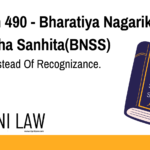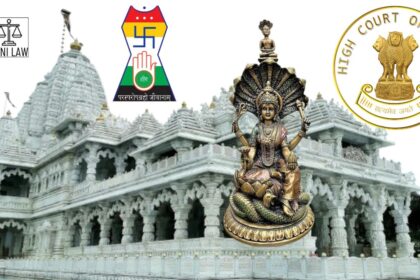Code: Section 94 BNS
Whoever, by secretly burying or otherwise disposing of the dead body of a child
whether such child die before or after or during its birth, intentionally conceals or endeavours
to conceal the birth of such child, shall be punished with imprisonment of either description
for a term which may extend to two years, or with fine, or with both.
Explanation of Section 94 BNS
This section criminalizes the secret disposal of a newborn’s dead body to conceal its birth. The law applies regardless of whether the child was stillborn, died during birth, or after birth.
Key Elements of Section 94 BNS
- The act must involve secret disposal of a dead child’s body
- Methods can include burying, throwing, hiding, or destroying the body.
- The intention must be to conceal the birth
- If the disposal is done to hide the fact that the child was born, it falls under this section.
- Punishment
- Imprisonment up to 2 years, or
- Fine, or
- Both
This law primarily aims to prevent infanticide cover-ups and illegal birth concealment.
Illustrations of Section 94 BNS
Example 1: A Woman Secretly Buries a Stillborn Child
A woman gives birth to a stillborn baby at home and, fearing societal shame, buries the body in her backyard without informing anyone. This act is punishable under Section 94 BNS.
Example 2: A Midwife Disposes of a Newborn’s Dead Body
A midwife assisting in childbirth finds that the baby is stillborn. Instead of reporting it, she throws the body in a river to avoid investigation. This is an offense under Section 94 BNS.
Example 3: A Family Disposes of an Illegitimate Child’s Body
A family, to hide the birth of an illegitimate child, disposes of the dead newborn’s body in a secluded place. This is a crime under Section 94 BNS.
Common Questions and Answers on Section 94 BNS
1. What does “concealment of birth” mean in this section?
It refers to hiding the fact that a child was born by secretly disposing of its dead body.
2. Is it an offense if the child was stillborn?
Yes. Even if the child was born dead, disposing of the body in secret is punishable under Section 94 BNS.
3. What is the punishment under Section 94 BNS?
The law prescribes:
- Imprisonment up to 2 years, or
- Fine, or
- Both
4. Does this law apply if the disposal was due to fear or societal pressure?
Yes. The intent to conceal birth—regardless of motive—makes it an offense. Social pressure is not a defense.
5. Is reporting a stillbirth mandatory under Indian law?
Yes. As per medical and legal guidelines, stillbirths must be reported to local authorities. Failure to do so and secret disposal of the body can result in legal consequences under Section 94 BNS.
Conclusion
Section 94 BNS aims to prevent the secret disposal of a newborn’s dead body to conceal birth. The law applies whether the child was stillborn, died during birth, or after birth. The punishment includes imprisonment of up to 2 years and/or a fine.
For legal assistance or more details, visit ApniLaw today! 🚀








